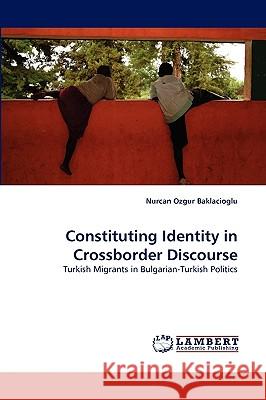Constituting Identity in Crossborder Discourse » książka
Constituting Identity in Crossborder Discourse
ISBN-13: 9783838334479 / Angielski / Miękka / 2010 / 104 str.
The post-communist interaction between crossborder actors such as dual citizens, crossborder voters, migrant associations, twin municipalities, minority parties, NGO's, local political structures, elections and capital extends into a new crossborder site based on multiple citizenship rights and duties and transnational democratic participation. This process hampers the state- imposed bounded groupness and reveals the fluidity and multiplicity of the crossborder identifications. As political site and identity constituted through discursive and interdiscursive practices across national borders, crossborderness may develop as a basis for further promotion of crossborder democracy and lasting governmentality across national sites.
The post-communist interaction between crossborder actors such as dual citizens, crossborder voters, migrant associations, twin municipalities, minority parties, NGOs, local political structures, elections and capital extends into a new crossborder site based on multiple citizenship rights and duties and transnational democratic participation. This process hampers the state- imposed bounded groupness and reveals the fluidity and multiplicity of the crossborder identifications. As political site and identity constituted through discursive and interdiscursive practices across national borders, crossborderness may develop as a basis for further promotion of crossborder democracy and lasting governmentality across national sites.











